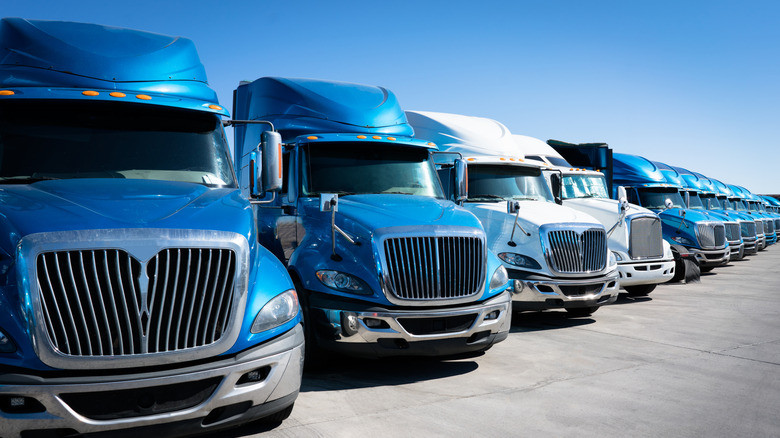The 'Great Freight Recession' Isn't Over – Another Trucking Company Just Closed Its Doors
The trucking industry is an invaluable component of everyday life in America, and one that keeps the nation moving forward. From the food that fuels us to the clothes we wear, the medicine we take, and everything in between, trucking makes it all possible. But the industry is currently in a crisis situation, and it's not from the government shutdown. Trucking has been plagued with multiple company closures, and now Montgomery Transport is the latest one to shut down. The Birmingham-based company made the unexpected move to file for Chapter 7 bankruptcy in mid-October 2025. Montgomery's closure means 1,000 employees will lose their jobs.
Montgomery's demise is emblematic of the situation that's known as the "Great Freight Recession." Dozens of trucking companies have either filed for bankruptcy to recoup their losses, or fully closed outright, in 2025 alone. Epic Lightning Fast Service is an example of the latter, with the company ceasing operations by the end of October. It's a complete shutdown for the San Diego company, as more and more non-bankruptcy closures are becoming much too common.
Unfortunately, the trucking industry's struggles don't appear to be ending anytime soon. A combination of high operating costs, tighter credit lines, and regulation changes are making things that much tougher for trucking companies. It's also tough for the drivers who keep those companies on the road, as they're forced to find employment while many companies continue to close. The more time goes on, the more uncertain everything becomes — for everyone involved.
The road to the Great Freight Recession
The Covid-19 breakout in 2020 is often pegged as the beginning of the "Great Freight Recession." But things actually began getting bad for the trucking industry before then. Pricing levels were weak, the cost of diesel fuel was climbing, and there were too many carriers competing for the amount of loads available. The pandemic actually helped for a bit, as the demand for deliveries went through the roof, sparking an uptick in the industry.
But that demand dropped in 2022, when things began to settle down, as inventories of goods began to increase. Fuel and insurance prices didn't drop, however, creating a scenario in which companies didn't have to transport as much, and drivers were left with nothing to deliver. As the downturn continued, trucking companies had to find a way to cut costs. This resulted in many truck drivers being asked to take a pay cut. Some companies also began hiring drivers who didn't have the right permits to drive, in an effort to save money. This presented even more problems later on.
As trucking companies continue to wrestle with operating logistics now, it's clear that demand is just one part of the problem. Even as inventories dip and manufacturing is steady, transport companies are still no better off. Costs are still high, and new tariffs, combined with stricter driver regulations, are making things even worse. Because of this, the recession could likely continue throughout the rest of 2025 and beyond.

